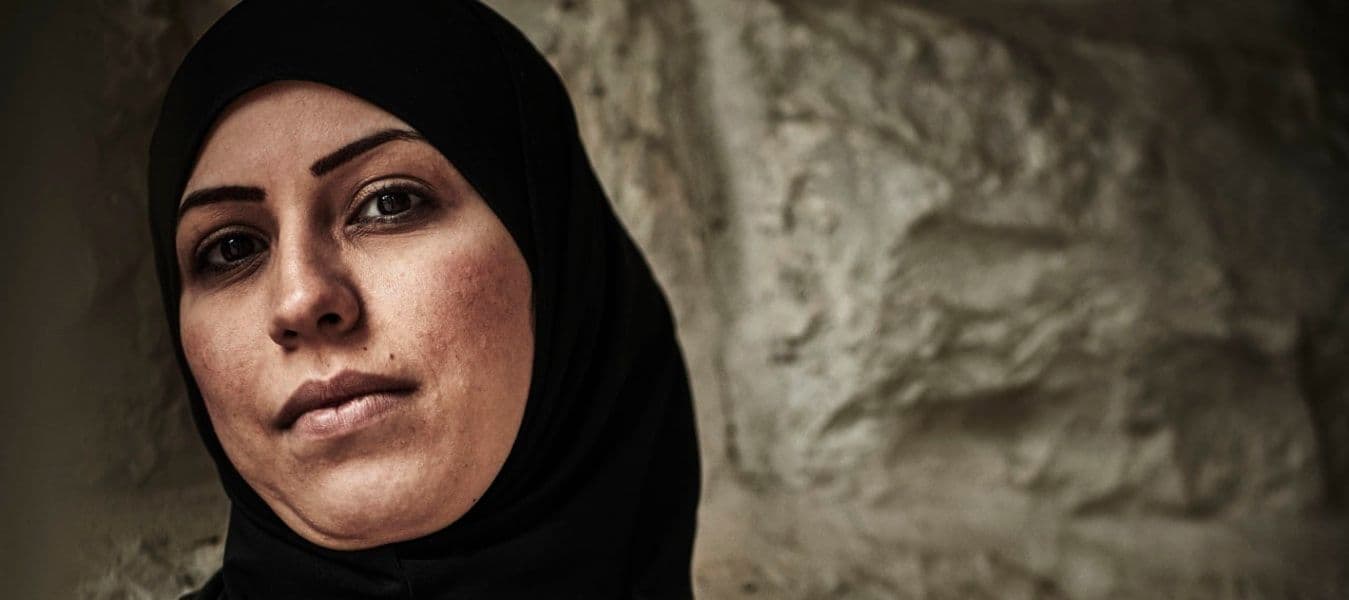
From Jordan with love: creating jobs during the Syrian crisis
Through a network of social entrepreneurs in Jordan, IKEA is creating jobs for Jordanian women and refugees coming mainly from Syria. Their skills in handicraft are on display in TILLTALANDE; a collection developed together with a team from IKEA, including the designer and self-proclaimed textile nerd, IKEA Designer Paulin Machado.
Carpets, embroidered cushion covers, and floor cushions are featured in a new collection made in Jordan. TILLTALANDE will create job opportunities as IKEA has initiated a long-term partnership with the NGO and social enterprise Jordan River Foundation. For the first collection, approximately 50 refugees and 50 Jordanian women are trained and hired.
Early in 2017, IKEA teamed up with the Jordan River Foundation to develop the collection. Product Developer Stina Engler and Designer Paulin Machado at IKEA, visited Jordan twice to meet the artisans and incorporate their techniques and details into the design. “A lot of people in the area are skilled craftspeople, and together with the people at Jordan River Foundation, we have developed a range of textile products. We have worked together with social entrepreneurs before, but this is the first time we work with local women and refugees in Jordan,” says Stina Engler.
In this film, see how artisans from Jordan and Syria are working together with IKEA to create beautiful handmade products for the TILLTALANDE collection.
It’s rare for IKEA to launch a project with such urgency. The brief was delivered to the creative team in February 2017, production will begin in October, and the collection will launch in the IKEA store in Amman, Jordan in December. “The production team at IKEA has worked hard to make it happen as soon as possible in regards to what Jordan is going through.”
“IKEA has been collaborating with social entrepreneurs as a way to create long-term and sustainable social changes via the creation of job opportunities.”
Since the start of the Syrian conflict, Jordan has received nearly 700 000 refugees, a country of only 9,5 million people. One of the major purposes of placing production in Jordan is to support Jordan’s journey in integrating refugees with locals in the labour market through jobs.
During the past four years, IKEA has been collaborating with social entrepreneurs around the world as a way to create long-term and sustainable social changes via the creation of job opportunities. Energising vulnerable communities in a way that monetary charity cannot.
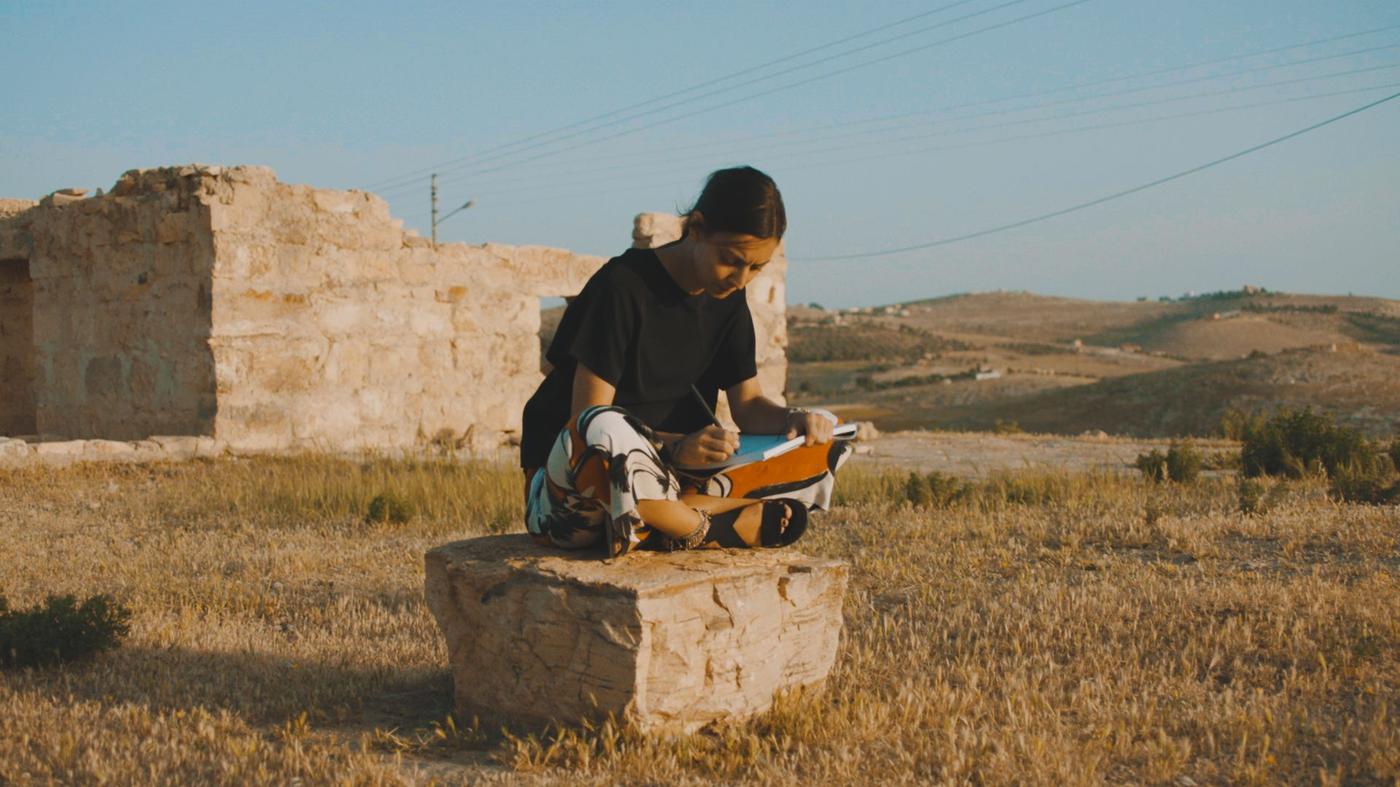
On-site in Jordan, IKEA designer Paulin Machado incorporated traditional techniques into the design. “It was important to us to put the focus on the work of the artisans. We had great help from the designer Faridon Abida at the Jordan Foundation who has insight into the different techniques and helped us find the right balance between design, production efficiency and making the items attractive for consumers in the region.”
“I loved sitting next to these strong women and learning a little about the symbols and traditions in the weaving of the semi-nomadic Bedouin clan Bani Hamida.”
One of the sketches Paulin Machado brought to Jordan was inspired by the shape of eyes. “I was so happy to see how this triggered a lot of positive associations in the group of women. The eye is very symbolic in the region, and they could all relate to different positive connotations. They immediately contributed with ideas on how we could enhance my original design by adding beautiful handmade details such as tassels and colourful embroideries.”
The collection has earthy colours reflecting the Jordan landscape, but also a modern touch with black and white. “We learned a lot from each other and had a dynamic collaboration. The bouncing off ideas with the artisans was very important for us as we wanted to find the right expression; a modern design that still reflects the culture of the area and, of course, would be attractive for our customers to purchase,” says Paulin.
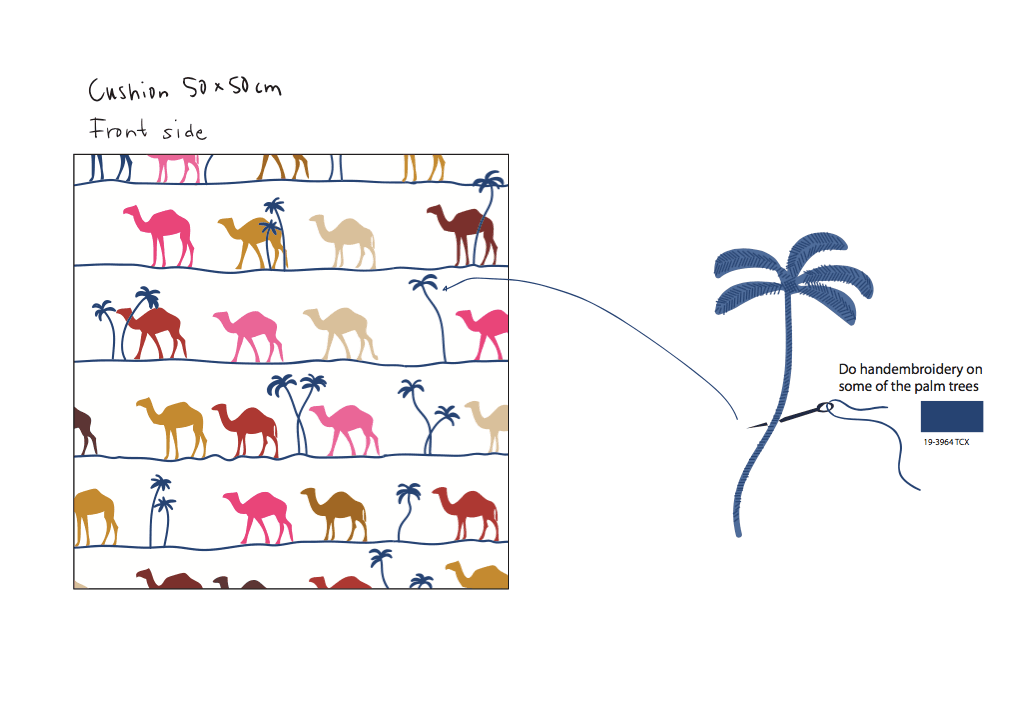
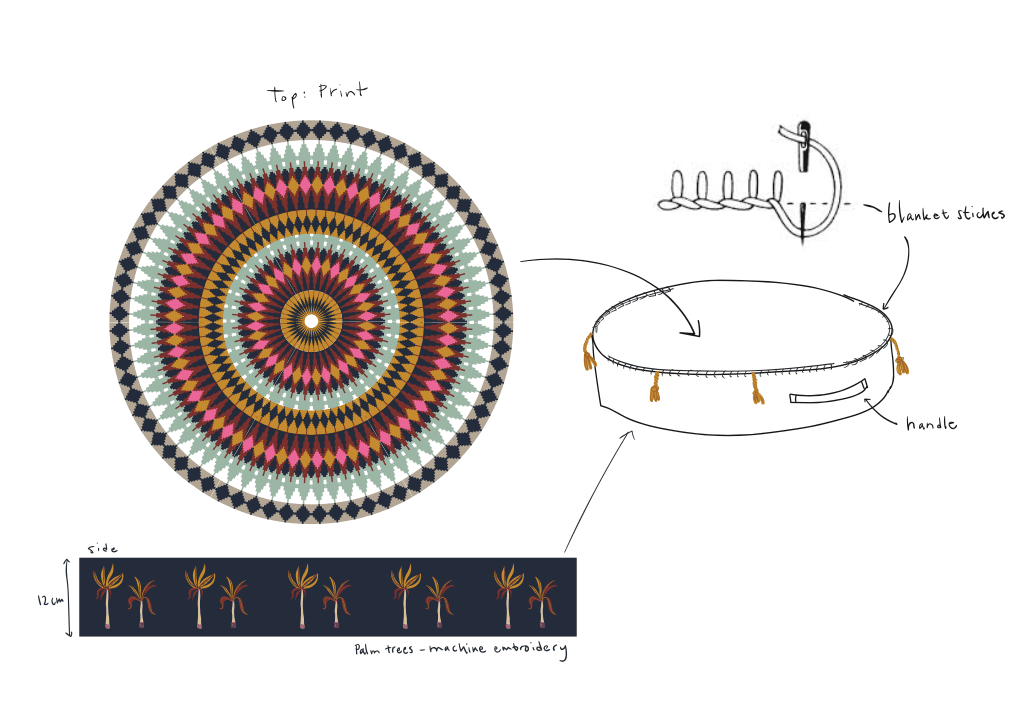
Some of the designs they came up with together, like a pillow case with a print of a photo that is hand embellished by the artisans using embroidery. “We photographed a cactus outside the house of one of the women, and together we came up with the idea of using tassels as flowers.”
Paulin Machado describes herself as somewhat of a textile nerd and enjoyed the exchange of knowledge. “I loved sitting next to these strong women and learning a little about the symbols and traditions in the weaving of the semi-nomadic Bedouin clan Bani Hamida. It has been passed on from mother to daughter for thousands of years as a central part of the Bedouin culture.”
As a part of the development process, the team also had the possibility to visit the home of one of the artisans. “Being invited to their home is a strong and heart-warming memory,” says Stina Engler.
In terms of product development, one of the challenges has been to make sure the traditional techniques pass the strict IKEA safety regulations. “After we had incorporated the Jordanian textile techniques into the design we worked together with them to make sure the products would pass IKEA testing at our lab in Älmhult,” says Stina Engler.
“We are super happy about how the products turned out and hope that this can be the start of making life better for the woman and refugees involved in Jordan.”
Right now, one hundred women and refugees have been employed to produce the collection and the team at IKEA are anxious to see the result. “We are super happy about how the products turned out and hope that this can be the start of making life better for the woman and refugees involved in Jordan,” says Paulin Machado.
After being launched in Jordan in December 2017, TILLTALANDE will be released in selected stores around the world in 2018.
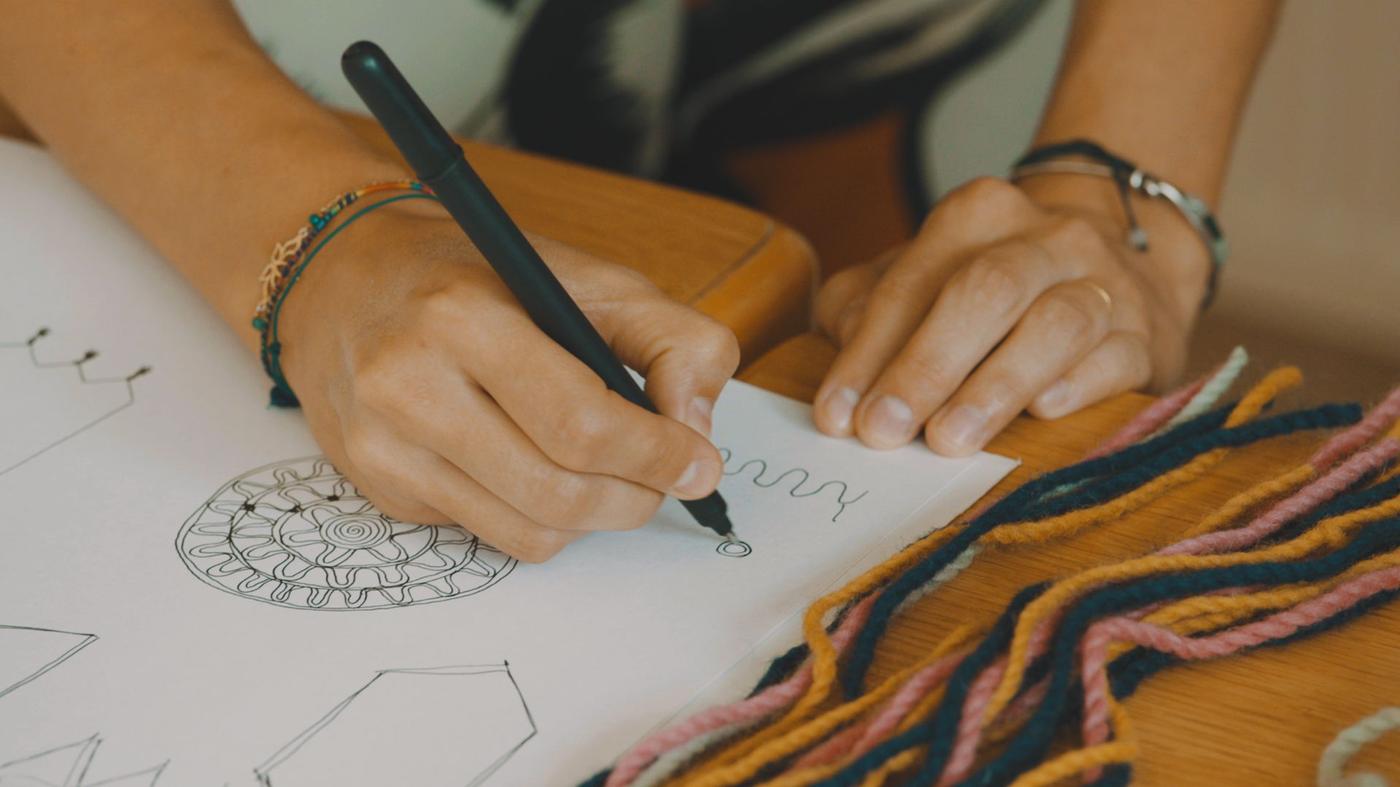
The IKEA Social Entrepreneur Initiative, launched in 2012, is about collaboration between IKEA and social entrepreneurs to merge gaps between people and cultures, share ideas and create a better everyday life for more of the many. Developing and designing with a social mission provides life-changing opportunities for women living in remote areas and discriminated minority groups, thus leading to gender empowerment, reduced poverty and a possibility for families to provide for their children. For IKEA, it also provides a great deal of inspiration, knowledge, and partnership with skilled artisans, while offering customers unique handicraft. IKEA is currently working with 17 social entrepreneurs all over the world.